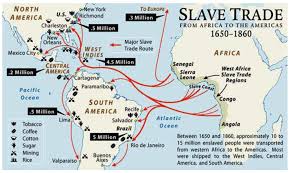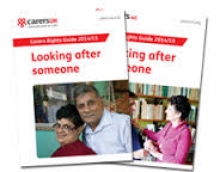Work TV
Watch our TV Channel dedicated to the ‘World of Work’. Explore our video library for informative videos featuring career opportunities at leading companies, franchising opportunities, further education and recruitment professions and their services.
Simon Collyer
Work and Pensions Select Committee Wednesday 2 December, 9.30am
Live from the House of Commons
Work and Pensions Select Committee
EVIDENCE SESSION: Local welfare safety net
9.30am, Wednesday 2 December, Wilson Room, Portcullis House
The Work and Pensions Committee is holding an inquiry into the “local welfare safety net”—local authority-run discretionary welfare assistance, housing payment and Council Tax support schemes.
Purpose of this session
This is the second of two evidence sessions in the inquiry. The Committee will hear evidence from local authorities on best practice in the administration of locally-run discretionary welfare. It will then question Ministers on the Government’s position on the range of issues raised during the inquiry, including the adequacy and effectiveness of the local welfare safety net as a whole.
Witnesses:
At 9.30 am
- Jill Farrar, Senior Team Manager, Blackpool Council
- Councillor Paul McGlone, Deputy Leader and Cabinet Member for Finance and Investment, Lambeth Council
- Councillor John Fuller, Vice Chairman, Resources Panel, Local Government Association and Leader South Norfolk District Council
At 10.15am
- Marcus Jones MP. Parliamentary Under-Secretary of State (Minister for Local Government)
- Matthew Style, Director of Local Government Finance, Department for Communities and Local Government
- Baroness Ros Altman CBE, Minister of State for Pensions
- Pete Searle, Director of Working Age, Department for Work and Pensions
Watch it live here at the ABC website.
Funeral Poverty and Bereavement Benefits Enquiry
Work and Pensions Committee launches inquiry on funeral poverty and bereavement benefits
Coinciding with a week of BBC programming on death and bereavement, the Commons Work and Pensions Committee is launching an inquiry into “funeral poverty”, and the benefits available to people who lose someone they were financially dependent on.
A recent FOI request by BBC local radio shows that the cost to local councils of so-called "paupers' funerals" has risen almost 30% to £1.7m in the past four years. The number of public health funerals, as they are properly known, which are carried out by local authorities for people who die alone or without relatives able to pay, has also risen by 11%.
Committee Members have heard from constituents who were denied their relatives’ ashes because they were unable to pay for the funeral. The Government provides Social Fund payments to help people unable to pay for funerals, but these are paid in retrospect and do not necessarily cover the full costs.
The Widowed Parents Allowance, to help a parent left to raise a child or children alone, is only available to parents who were married, and people may be unaware that bereavement support is available
The Work and Pensions Committee invites written evidence on:
The policies and processes which relate to the Social Funeral Fund Payment, Bereavement Payment, Bereavement Allowance and Widowed Parents Allowance and recommendations for improvement. The Committee are particularly interested to hear about people’s experiences of:
Funerals
- What are the costs of a funeral, and how does this compare with payments from the Social Funeral Fund?
- Do funeral homes offer less expensive funeral options for people on low incomes?
- Could improvements be made to the application process for Social Funeral Fund payments?
- What is the impact on families and individuals when they cannot meet the cost of a funeral for a friend or relative?
- What is the impact on funeral homes and directors when the cost of a funeral cannot be met?
- What arrangements do Local Authorities have for Public Health Funerals? Have LAs seen an increase in Public Health Funerals and what is the cost to LAs?
Bereavement benefits
- What is the level of awareness about bereavement benefits, amongst those who may be eligible to claim?
- Are bereavement benefits targeted at those who need them? Should eligibility criteria be reviewed?
- Are there any problems with how bereavement benefits will interact with Universal Credit?
- Is communication and guidance about bereavement benefits sufficient?
Emma Lewell-Buck MP, Committee Member, said:
"Losing a loved one is one of the most difficult experiences we face in our lives. As the costs of funerals have risen out of pace with financial support, more and more people are faced with the prospect of funeral poverty. Over 100,000 people are living with average funeral debt of £1,318. The Committee will be looking at what can be done to better support people at times when they are particularly vulnerable."
For full information or to submit evidence go to This email address is being protected from spambots. You need JavaScript enabled to view it. and we can submit this on your behalf.
Katie Hopkins Get's Student Thumbs Down
Katie Hopkins has been in the news you may know. Students at Brunel University turned their backs on Katie visiting the University for a Benefits Debate and they walked out on mass. The student body was very unhappy at allowing her to speak, but did not want to be seen infringing the right of free speech. What was not as widely reported was that the debate still went ahead.
We approach Katie's management team Sth Management Ltd, Founder and CEO Sylvia Tidy-Harris, to see if Katie would enter into some Q&A’s but she really is busy.
If there are people you really don’t want to listen to this Christmas we have the answer - you can always tune in to Christmas FM, an Irish Charity Radio Station, and turn up the volume. Give it a try: http://christmasfm.com

Action Plan for Irish Jobs
Irish Senator Mary Moran has warmly welcomed the Government announcement on the North East / North West action plan for jobs announced today.
"Since the national plan for jobs was announced in 2012 more than 20,000 extra people are employed In the North East/ North west areas which include Louth Monaghan Cavan Donegal Sligo and Leitrim.
“The successful implementation of the announcement today is hoped to target 28,000 additional jobs for the region by 2020 - an increase of 10-15% employment growth.
“I am particularly pleased that today's announcement will greatly benefit my own area of Louth and will include an increase in the number of lDA investments who will build a range of property solutions including advance facilities in Dundalk with expected completion in 2018.
“The IDA and Enterprise Ireland will also work with industry to progress a Digital Payments Cluster along the M1 corridor.
“Louth has suffered greatly in the economic downturn but now as we see an improvement in the economy I believe we can build on the strength of being strategically along the M1 corridor, midway between Dublin and Belfast with good access to ports and airports making it very enticing for companies to invest in the area alongside other successful companies who have located here including PayPal, eBay, Vesta ,Yapstone and State Street.”
Mary Moran is an Irish Labour Party politician. Ms Moran is the Labour Party Seanad spokesperson on Education, Disability, Equality and Mental Health.
End of the Mandatory Work Activity
The end of the Mandatory Work Activity scheme [hidden in the Autumn Statement] is good news. The ABC have long argued that the scheme amounted to slave labour in essence or indentured servitude. The Poundland case was to many people another example of the unnecessary petty and mean-spiritedness of Ian Duncan Smiths policies.
The EU argued that DWP policies did not amount to slave labour, as he persons title was transferred. Basically you can steal a car, but you cannot steal the ‘title’ of the car which is still owned, by the owner. Thus if you buy a stolen car, it is still the original owners property even if you have possession of it.
Slaves were once ‘chattel’ or goods, indentured servitude was where people would work and get paid something latter. After the Boer War the mines in South Africa had not paid a dividend for two years and they were flooded. Scores of Chinese labourers were recruited. Ten thousand people could be working on one shift in Johannesburg Gold Mines. The Chinese Empress built a new palace in the shape of a ship from the proceeds.
The DWP confirmed the programme would be replaced by a new “work and health programme” as part of the spending review settlement but said no details had been finalised about what form that would take.
Analysis by the DWP had found that the scheme was largely ineffective at getting people into work and that it had no impact on employment prospects. 70,000 people had taken part at a cost of around £5m a year.
The National Institute for Economic and Social Research said was “very difficult indeed to reconcile” the decision to roll out programme at a time the county was involved in austerity measures when the scheme clearly was not working.
The Government’s main welfare-to-work scheme, the Work Programme, continues.
Claimants have long known this Mandatory Work Activity scheme was being used to punish claimants by Jobcentre Plus staff. The scheme had little real value to the actual claimant.

The original Atlantic slave trade.
Slavery in the form of human trafficking goes on today. As many as thirty six million people are estimated to be trafficked worldwide. Exploiting people’s free labour by criminals is a huge 'business'.
DWP Select Committee - Local welfare safety net
House of Commons
Work and Pensions Select Committee
EVIDENCE SESSION: Local welfare safety net
9.30am, Wednesday 2 December, Wilson Room, Portcullis House
The Work and Pensions Committee is holding an inquiry into the “local welfare safety net”—local authority-run discretionary welfare assistance, housing payment and Council Tax support schemes.
Purpose of this session
This is the second of two evidence sessions in the inquiry. The Committee will hear evidence from local authorities on best practice in the administration of locally-run discretionary welfare. It will then question Ministers on the Government’s position on the range of issues raised during the inquiry, including the adequacy and effectiveness of the local welfare safety net as a whole.
Witnesses:
At 9.30 am
- Jill Farrar, Senior Team Manager, Blackpool Council
- Councillor Paul McGlone, Deputy Leader and Cabinet Member for Finance and Investment, Lambeth Council
- Councillor John Fuller, Vice Chairman, Resources Panel, Local Government Association and Leader South Norfolk District Council
At 10.15am
- Marcus Jones MP. Parliamentary Under-Secretary of State (Minister for Local Government)
- Matthew Style, Director of Local Government Finance, Department for Communities and Local Government
- Baroness Ros Altman CBE, Minister of State for Pensions
- Pete Searle, Director of Working Age, Department for Work and Pensions
Watch it live here at the ABC website.
Joan Burton TD Speaks Out
We do like these speeches by Joan Burton TD. The Irish have a way with words and at the ABC we find these speeches very enlightening as we can compare them with what’s happening in the UK and the rest of Europe.
SPEECH BY JOAN BURTON TD
An Tánaiste / Leader of the Labour Party
Friday, 27th November 2015
DEVELOPMENT OF THE DOCKLANDS MUST HAVE REGENERATION AT ITS HEART - BURTON
Speaking at the Development of the Dublin Docklands Seminar Programme:
I’m delighted to open this morning’s seminar, and I want to thank Joe Costello for organising the event.
Joe has been working hard representing the concerns of communities in the Docklands area for a long time now.
The report that Joe has produced highlights a number of priorities:
· The need for development of the Docklands to have regeneration at its heart;
- The need for a focus on social dividend for the local community; and
- The need to ensure the voices of the community are included.
Not purely as a means of consultation, but as an oversight body too.
This Government decided in 2013 to wind up the Dublin Docklands Development Authority.
The legislation to dissolve that Authority is completing its passage through the Dáil.
It was also decided that Dublin City Council would be the authority to oversee the continued regeneration of the Dublin Docklands.
I know that Dublin City Council is anxious to ensure that the voices of the Docklands communities will be represented in the future development of the area.
To that end, the Docklands Consultative Forum was proposed, with a structure, membership and remit broadly similar to its predecessor.
However, I know that at Committee Stage in the Dáil, several deputies expressed specific concerns regarding that Forum.
They felt that as defined, the Forum is consultative only in nature, and that its remit should be broadened to include an oversight function.
They also felt that submitting its annual report only to Dublin City Council did not subject it to the scrutiny of the Oireachtas.
Recognising these concerns, and subject to tweaking of language with the Attorney General’s Office, it is proposed to strengthen the legislation in two key ways.
Firstly, to amend the Bill early next month to change the name of the Forum to the “Docklands Oversight and Consultative Forum”.
Secondly, that the Minister will be required to lay the Forum’s annual report before the Oireachtas each year.
This will ensure that the report can be examined by Joint Oireachtas Committees thereafter.
The legislation is anticipated to go to final stages in the Dail next week, and it is hoped to be passed before Christmas.
I know this is something Joe and others have been pushing for, and I’m glad to say that we can strengthen the legislation in this way.
I know the new forum will be an invaluable resource.
I want to return more broadly to the theme of social dividend I mentioned earlier.
Since I became Tánaiste and Labour Leader, I’ve been talking about the need for the economic recovery to be accompanied by a social recovery.
This means ensuring the recovery is felt in the life of every person, every family and every community, including in the Docklands.
And it’s driven everything Labour have done in government since then.
Our economy is projected to be the fastest-growing in Europe this year.
And unemployment has fallen below 9%, from a crisis peak of 15.1%.
We want to use this recovery to create more opportunities for people, particularly those in disadvantaged areas.
That means opportunities for people to find employment that pays a living wage, so they can build a better financial future for themselves and their families.
It means the opportunity to get a good education in good schools.
On that note, I’m delighted that the St Laurence O’Toole national schools were included in the €2.8billion school building programme which we announced last week.
And it means the opportunity for young people to access quality training and apprenticeships.
This year already, more than 3,000 people are expected to begin apprenticeships, twice as many as in 2012.
And in the recent Budget we’ve invested an additional €10million in the national training fund to boost spending on apprenticeships.
It will mean more numbers on the existing apprenticeships, and help fund the rollout of 25 new programmes.
All in sectors where there will be significant career opportunities in the coming years.
One of those new apprenticeships programmes is in financial services.
It will help make careers in places like the IFSC more accessible for people who may not have gone to college.
The IFSC has helped to transform the Docklands.
It’s an iconic example of urban economic regeneration.
Earlier this year the Taoiseach and I launched a new strategy for the financial services sector.
It aims grow and develop the sector in a very targeted way.
In doing so, it will help create an additional 10,000 jobs by 2020 in financial services firms.
But in focusing on creating jobs, we must also ensure that people are ready to take up these jobs.
Since I became Social Protection Minister, my Department has transformed into a service that both helps jobseekers find work, training and education - and helps employers meet their recruitment needs.
One such way is the JobsPlus scheme.
It subsidises wage costs for employers when they hire someone who has been unemployed for 12 months or more, and it’s proven particularly successful.
To build on that success, we introduced a dedicated JobsPlus Youth for young people under the age of 25.
Under this, the qualifying period for employing such young people has been reduced from 12 months to four months.
It’s one of the innovative ways we’re looking to drive down youth unemployment.
Continuing to help people find work; supporting small and large enterprises here in the Docklands; providing more apprenticeship opportunities; and investing in new schools.
These are just some of the ways in which we are working to bring about a social recovery.
For communities in the Docklands and across Ireland.
Thanks again for inviting me and I hope you have a very productive and interesting discussion this morning.
Wil Quince MP Letter
Everyone is claiming success on the Tax Credit reversal announced in the autumn statement. We recieved a letter today from Will Quince MP (Cons Party).
George Osborne says in his Spending Review speech that the money raised through the VAT payable on female sanitary products will be used to fund various women's health and support charities - an idea that he says was suggested by Colchester MP Will Quince. That fiscal initiative came as a suprise to us.
Some good news on the Tax Credit situation. The Conservative MP's that spoke out for their lower income constituents deserve a sincere pat on the back.

Another DWP Court Case Loss
In yet another case found against the DWP a Court has found the welfare secretary, Iain Duncan Smith, unlawfully discriminated against disabled people by failing to exempt their carers from the benefit cap, a high court judge has ruled.
Mr Justice Collins said the government’s decision to apply the cap to full-time carers for adult relatives had created serious financial hardship for them. The benefit cap, which limits working-age unemployed people to £500 a week in benefits, was introduced by the government on the basis that it sent a strong message to so-called workless families that they had to try harder to get a job.
According to the Guardian Collins said: “To describe a household where care was being provided for at least 35 hours a week as ‘workless’ was somewhat offensive. To care for a seriously disabled person is difficult and burdensome and could properly be regarded as work.” The court ruled that the government had breached article 14 of the European convention on human rights.
Heléna Herklots, chief executive of Carers UK, which supplied evidence to the court in support of the challenge, said: “Subjecting those who provide unpaid care to the benefit cap is unfair, counterproductive and inconsistent with the government’s stated aims for the policy. We hope the government accepts the high court’s decision and brings forward new regulations to give all carers equal rights.”
The ruling is the second this year to criticize the benefit cap. In March the Supreme Court found that although the cap was legal, it left claimants unable to house, feed or clothe their family and was therefore in breach of the UK’s obligations on international human rights.
The ABC says: The DWP's track record in court is pretty embarassing. The government should not be losing so often. It points to deeper issues within the DWP management, that many see as morally and ethically bankrupt.
Source From a Guardian article
Stop the Loan Sharks Campaign Week
England illegal money lending team Social Media Campaign Week Starting Monday 30th November 2015
The England Illegal Money Lending Team (IMLT) campaign promoting the Stop Loan Sharks message will launch on Monday 30th November 2015 and run until Christmas. The IMLT will lead the campaign with support from partner organisations. The IMLT want to ensure that everyone knows what a loan shark is and more importantly how to report one.
A Loan Shark is someone who lends money without the correct permissions. These permissions are granted by the Financial Conduct Authority. Loan Sharks rarely, if ever, give any paperwork and if payments are missed they often use intimidation and violence to get money from their 'clients'. The Illegal Money Lending Team is there to help. If you have any information, however small, on loan shark activities IMLT can help.
- Have you been offered a cash loan?
- Have you been threatened when you couldn't pay?
- Has your bank card been taken from you as a security?
- Does what you owe keep growing even though you are making payments?
If you can answer yes to any of the above then you may have been bitten by a loan shark. If you, or anyone you know, is experiencing any of the above or has any knowledge of loan shark activities then contact the IMLT team IN CONFIDENCE.
If you have been offered a legal loan call this number:
Telephone: 0300 555 2222
e-mail:This email address is being protected from spambots. You need JavaScript enabled to view it.
or by text to: loan(space)shark(space) + your message to 60003
You can also find out more by visiting www.facebook.com/stoploansharksproject.
























